As we’ve always been interested in knowing how much of a problem our consumption of plastic is for our environment, we decided on doing this project about the plastic pollution going on in Switzerland compared to Hawaii.
More precisely, this article is going to inform you about plastic pollution in general, there’s an interview we did with “Foifi & Zollfrei”, an unpacked-store based in Zürich and it’ll show what YOU could be doing to reduce plastic waste. Carmen, who is currently living abroad in Oahu, Hawaii (google.com/map) had been our collaboration partner for this project. We thank her a lot for collaborating with us!
What actually is plastic waste and what impact does it have on our planet?
Nowadays, plastic is to be found everywhere. Plastic bags, when you do your weekly grocery shopping, plastic bottles you quickly buy when you’re thirsty, straws for your Starbucks-coffee – Plastic has become one of the most used substances and people are using it without even thinking twice about it. However, no one realizes how harmful it actually is for our planet.
Plastic pollution is affecting our whole earth, including mankind and wildlife. As it can take hundreds or even thousands of years for plastic to break down, the environmental damage is long-lasting. Each year, millions of animals are killed by plastics.
Especially the Marine life is harmed by one’s waste of plastic. Oceans, lakes and rivers are filled with tons of it and it’s not becoming less.
Most of the deaths of the animals living in our waters are caused by entanglement or starvation. Poor seals, whales, turtles and other animals are strangled by fishing gear left-behind in the ocean. Fish mistake plastics for food, eat them and eventually starve to death.
Plastics have been consumed by land-living animals as well, including elephants, zebras, tigers and other large mammals. In some cases the consumption ended deadly.
Plastic pollution in Hawaii
For decades, plastic pollution in the ocean has become more and more of an issue and is expected to outweigh all the fish in the sea by 2050.
As Carmen, our collaboration partner found out, plastic pollution in Hawaii ranges from microplastics that contaminate coastal areas and endanger marine life to huge mountains of plastic waste piling along the beach. Kamilo beach (shown in the following pictures) is one of Hawaii’s beaches most known for being covered in plastic. “We couldn’t believe our eyes. It was shocking seeing all the plastic just spread all over the beach and no one seems to care really”, Carmen and her friend said. They visited the beach in the course of the project in order to see how bad it actually is. Plastic waste causes a serious problem to Hawaii’s water quality and threatens its marine ecosystems. The plastics, more precisely the microplastics, absorb toxins to the environment and as already mentioned above get eaten by fish and other animals living in the ocean. Eventually they are consumed by us humans.
Plastic pollution in Switzerland
In Switzerland each person produces around 709 kg household waste per year, which makes our country the third largest waste producer in Europe. About 20 % of our waste is plastic waste. 14’000 tons of that plastic waste is released into the environment each year. Soil and water are directly affected by it.
What can YOU do in order to prevent plastic waste?
There are several things people can change in order to reduce their plastic waste. In the following paragraph you can find some usefull tips and tricks:
- Avoid single-use plastics such as drinking straws!
- If you go shopping, remember to take a cloth bag!
- Recycle chewing gum… it’s also make of plastic!
- Replace plastic Tupperware for glass or steel containers!
- Pay attention and put your plastic waste in the correct recycling container!
Interview with “Foifi & Zollfrei ” in Zürich
One great way to reduce plastic waste is to do your weekly grocery shopping in an unpacked store instead of a regular supermarket. Unpacked stores sell products which aren’t packaged. You bring your own containers and bags and fill them yourself.
In the course of this project we went to an unpacked store in Zürich and did an interview with Tara. She is 28 years old and owner and founder of “Foifi & Zollfrei” (foifi.ch) in Zürich.
Tara showed us her store, explained a few things and we were able to ask her the following questions:
What is sold in your store? How has the selection of products changed throughout the years?
Our assortment has grown continuously over the years. Sweets, for example, are offered more and more. Our products also include rice, pasta, pulses and spices. We also sell cosmetics, shampoos, cleaning products and books on the subject of zero waste. If you don’t have a container with you for your purchase, you can also buy it directly from us.
Are there any products that can’t be sold unpacked?
We would very much like to offer chips. Unfortunately, they quickly become unstable if they are not packed in an airtight container. However, we hope to find a possibility for this in the near future.
What types of people shop in your store?
Our target group is totally mixed and our customer base is getting bigger and bigger, which of course makes us very happy – everyone is welcome here!
Most of our customers come from the area around Zürich but there are people from outside the canton of Zurich as well.
Is there anything regular supermarkets should be doing in order to reduce plastic waste?
Fruits and vegetables should definitely no longer be packaged. In addition, many vegan and vegetarian products are incredibly elaborately packaged. More products should be offered in jars or for filling. It would be great if there were unpackaged departments in normal supermarkets in the near future.
Do you have any tips for the people reading this article in order to reduce their personal plastic waste?
A high-quality cotton bag is something you could easily always carry with you because it is incredibly versatile. A water bottle as well – you can refill it anywhere. And for the warm temperatures try to carry a glass or metal straw for cafes or bars.
Thank you very much Tara for doing this interview with us. It was a pleasure!
We actually wanted to do the same interview with an unpacked store in Hawaii. Unfortunately, we weren’t able to find any zero waste stores similar to the one in Zürich.
Most of them only sell clothing and beauty products, which is a more important issue than foods. Therefore we didn’t do an interview there. However, Carmen visited Protea Zero Waste Store in Kailua, Hawaii and had a nice chat with Amy, the marketing director for the store.
Authors
Lucie Lerch & Jana Fernandes
Collaboration partner
Carmen Rakeseder
Reviewers
Daniela Müller
Kerstin Zollinger
Sources
[1] Plastic pollution (Britannica.com)
[2] How to reduce plastic use (Iberdrola.com)
[3] Plastic pollution
[4] Pictures used were taken by us and Carmen Rakeseder
Topic related posts on dwme
What happens with a plastic bottle after it’s thrown into the recycling bin?
Made of 200 million years old organics – plastics
Plastic Bags – only used for 12 minutes
Sustainable Packaging
How much waste is produced while shopping?
How Switzerland tackles littering
Help Clean the Ocean and Coastlines
☷ See the project teams here »
☵ Some words about the contributions »
☴ Our sponsors and partners » (the-horse.education)
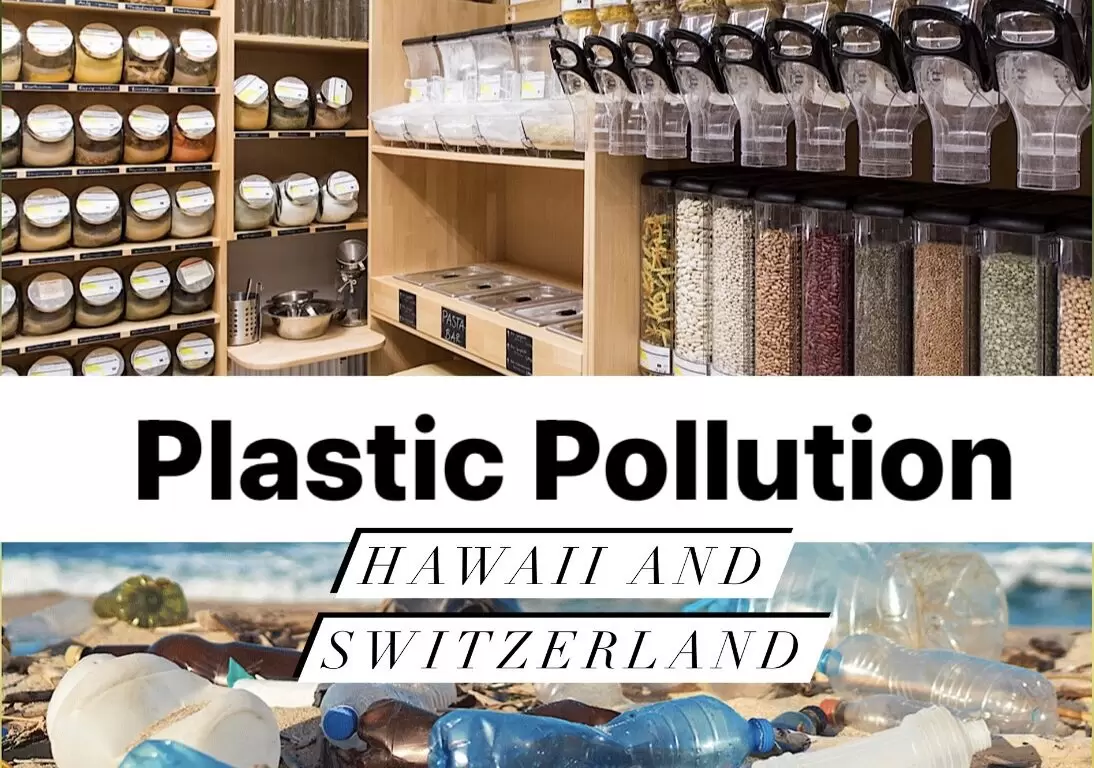
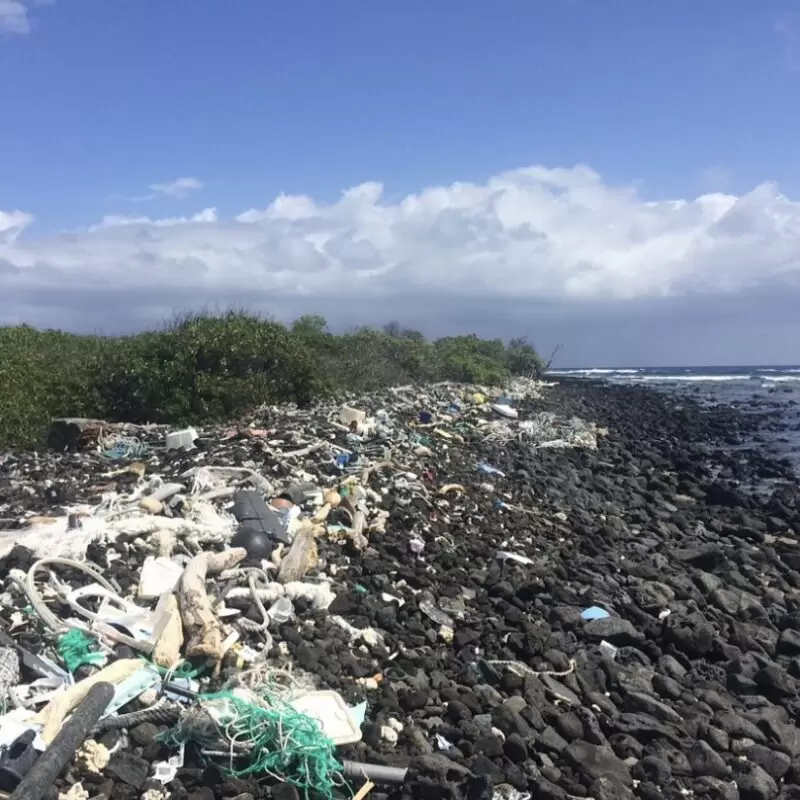
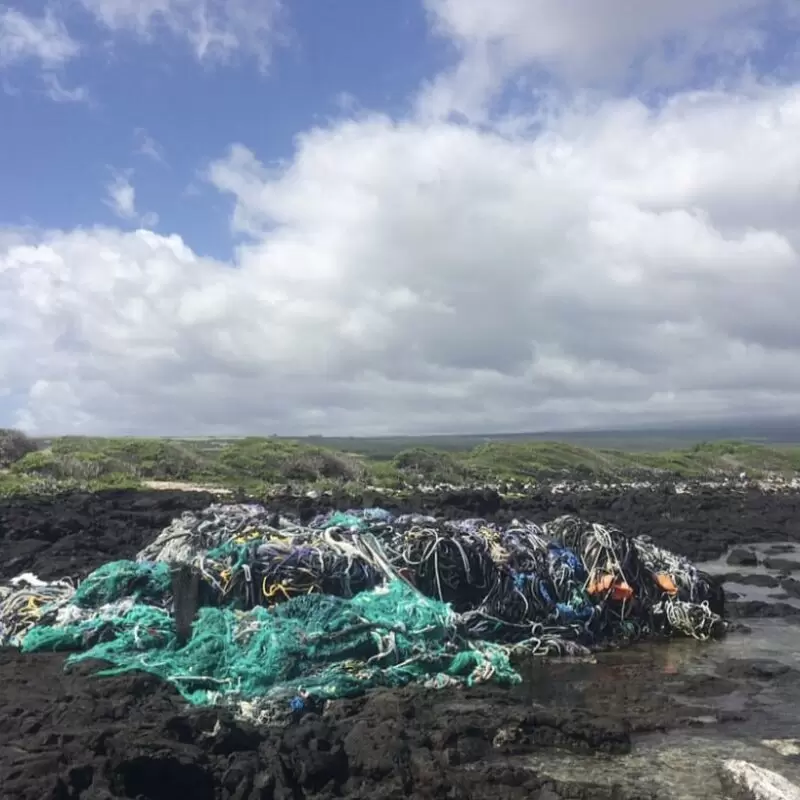
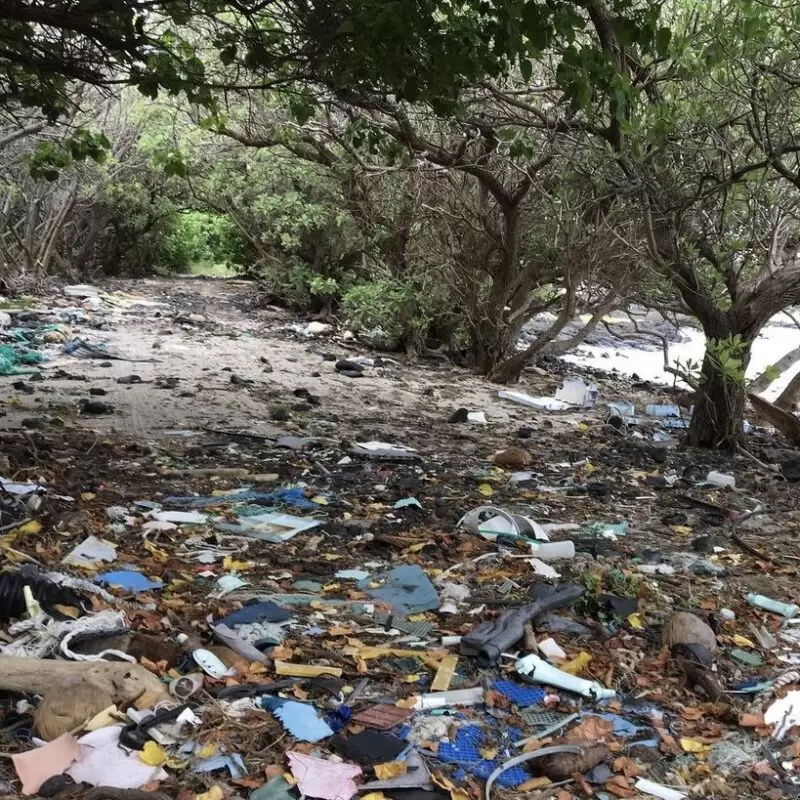
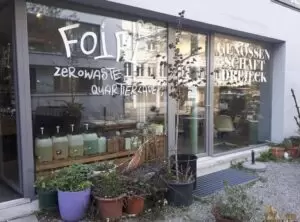
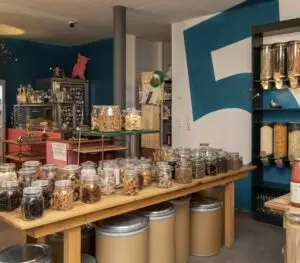
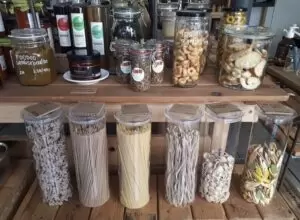
Plastic pollution is the accumulation of plastic objects and particles (plastic bottles, bags and microbeads) in the Earth’s environment that adversely affects wildlife, wildlife habitat, and humans.
Half of all plastics ever manufactured have been made in the last 15 years.
Production increased exponentially, from 2.3 million tons in 1950 to 448 million tons by 2015. Production is expected to double by 2050.
For decades, plastic pollution in the ocean has become more and more of an issue and is expected to outweigh all the fish in the sea by 2050.
There are several things people can change in order to reduce their plastic waste. In the following paragraph you can find some usefull tips and tricks:
-Avoid single-use plastics such as drinking straws!
-If you go shopping, remember to take a cloth bag!
-Recycle chewing gum… it’s also make of plastic!
-Replace plastic Tupperware for glass or steel containers!
-Pay attention and put your plastic waste in the correct recycling container!